Brexit – UUK fights back on Erasmus
UUK has launched a national campaign to encourage the UK government to commit to funding study abroad programmes in the event of a no-deal Brexit.
#SupportStudyAbroad is in response to a technical note on the Erasmus+ programme issued by government on 28 January 2019. The government has said that in the case of a no-deal Brexit, students on current placements will receive funding to their end, and that it would like to stay in the Erasmus+ programme for future calls. However, it is now clear that in the event of a no-deal Brexit there will be no national alternative to enable students to go abroad if continued Erasmus+ membership cannot be negotiated with the European Union.
Alistair Jarvis, Universities UK Chief Executive, said:
- “The benefits of study abroad are well documented. Not only does study abroad have clear employability benefits for students, it helps them to develop the language, communication and intercultural skills that will be so essential to building a truly global Britain. An investment in international experience for our students now is an investment in the future of our economy. Without the international opportunities offered through schemes like Erasmus, the UK’s workforce will not be equipped to meet the changing needs of the economy post-Brexit.
- “In the case of a no-deal Brexit, I strongly urge the government to commit to continue funding study abroad opportunities for UK students, even if the UK cannot negotiate continued participation in Erasmus+ programme.”
Key facts and stats
1) Study abroad supports social mobility. Students who study abroad outperform their peers academically and professionally. They are:
- 19% more likely to gain a 1st class degree
- 20% less likely to be unemployed
- 10% more likely to be in ‘graduate’ jobs six months after graduation
For those from underrepresented and disadvantaged groups the benefits are even more pronounced:
- BME students who studied abroad are 17% more likely to be in ‘graduate’ jobs six months after graduation
- Mature students who participated in these programmes earn 10% more than their peers
2) International opportunities help students develop skills that UK businesses need. Research by the CBI has found that:
- Seven out of 10 small and medium size enterprises believe that future executives will need foreign language skills and international experience
- 39% of employers are dissatisfied with graduates’ intercultural awareness
- 49% of employers are dissatisfied with graduates’ language skills
Widening Particpation performance indicators
On 7th February, HESA issued performance measures for WP.
Chris Millward of the OfS commented:
- ‘Today’s release points to incremental progress in improving equality of opportunity in higher education. The reforms we have recently announced are intended to secure a step change in the next five years, both through pressure on universities to enhance the plans they submit to us, and support to enable them to work in the most effective ways. We want universities to understand how they are performing using sophisticated measures, looking across different characteristics to understand disadvantage in their own context and targeting their activity and investment so that it really works.’
David Kernohan has analysed the data for Wonkhe:
- The HESA Performance Indicator data for 2017-18 is more about proportions than raw numbers. The headline figures see England and the UK enjoy a 0.2 percentage point rise (from 11.4% to 11.6%) in young entrants to HE from low participation neighbourhoods. ….
- There is also data on state school entry rates. In the UK and in England 89.8% of young full time first degree entrants attended state school, down 0.2 percentage points from last year. ..To put this latter paragraph in context, the Independent Schools Commission estimates that around 14% of 16 year old pupils attended an independent school.
One widening participation marker that is rarely discussed concerns the participation rate of students with disabilities. 6.6% of UK-domiciled full-time first degree students are in receipt of the Disabled Students’ Allowance in 2017-18 – the same as last year.
Application data for 2019
UCAS have issued data for applications for the 2019 cycle to date
They issued a summary report:
- Applicant numbers from within the UK decrease but numbers increase internationally
Overall, UK domiciled applicants have decreased by 0.7 per cent, while applicants from outside the UK have increased to their highest levels on record for both EU and non-EU countries. EU applicants increased by 0.9 per cent to 43,890, and non-EU applicants increased by 9.0 per cent to 63,695. Although EU applicant numbers have increased by 0.9 percent overall, they have decreased in Scotland, Wales, and Northern Ireland, with the only increase being in England, where they increased by 1.9 per cent to 37,595 (the second highest number on record after 2016).
- The overall fall in the UK can be attributed to the demographic dip
The number of 18 year olds in the UK has fallen each year since 2015 (falling by 2.0 per cent this year compared to last), and overall figures as reported above are affected by the falling number of school leavers (roughly 80 per cent of UK applicants are 18 – 19 year olds)…The application rate in England has risen every year since 2012 and is now at its highest on record (38.8 per cent), with this year having the biggest percentage point increase since 2014.
- Applicant numbers from China increase by one third
The number of applicants from China has increased by 33.3 per cent this year – rising from 11,915 to 15,880. This follows an increase of 20.6 per cent last year, and brings Chinese applicant numbers to almost the same level as those from Wales and Northern Ireland (18,855 and 17,910 respectively). Other countries with large percentage increases in applicant numbers include Romania (+260, 10 per cent), Slovakia (+180, 26 per cent), and Saudi Arabia (+150, 24 per cent).
- Application rates have increased in every English region
The order of regions by application rate is broadly similar to 2018, with London still having a considerably higher rate (49.9 per cent), and the North East having the lowest rate (32.9 per cent) for the second consecutive year. With the London rate increasing by 2.4 percentage points this year, 18 year olds in London are now 36 per cent more likely than 18 year olds in the rest of England to have applied to higher education (up from 33 per cent more likely last year). This is the first year since 2016 that application rates have increased in every English region
- The gap in application rates between advantaged and disadvantaged applicants decreases
Application rates have increased for all quintiles. The application rate for Q1 increased by 1.3 percentage points to 23.2 per cent, which is its biggest increase since 2014. The Q5 rate increased by 1.0 percentage points to 53.5 per cent, causing the Q5:Q1 application rate ratio to decrease from 2.40 to 2.30, meaning that the gap in application rates between advantaged and disadvantaged applicants has narrowed slightly
Free Speech Guidance
The Equality and Human Rights Commission have developed new guidance on freedom of expression at universities. The guidance aims to coherently definite legal rights and obligations around free speech with a view to empowering student unions and individuals. It also details the limited occasions where free speech can lawfully be limited. It has been produced with input from the National Union of Students, Universities UK, Charity Commission for England and Wales, Office for Students, Independent HE, Guild HE, Commission for Countering Extremism and Home Office.
Universities Minister Chris Skidmore said:
Free speech is a value integral to the independence and innovation that embodies the higher education sector in the UK, fuelling academic thought and challenging injustice. This guidance is a symbol of the commitment from across the sector to protecting freedom of speech.
David Isaac, Chair of the Equality and Human Rights Commission, said:
The free expression and exchange of different views without persecution or interference goes straight to the heart of our democracy and is a vital part of higher education. Holding open, challenging debates rather than silencing the views of those we don’t agree with helps to build tolerance and address prejudice and discrimination. Our guidance makes clear that freedom of speech in higher education should be upheld at every opportunity.
Key points
- Everyone has the right to express and receive views and opinions, including those that may ‘offend, shock or disturb others’.
- Protecting freedom of expression is a legal requirement for most higher education providers. Students’ unions also have a role to play, although their legal duties are different (see section 2).
- Higher education providers need to have a code that sets out their policies and procedures relating to external speakers, and make sure their procedures don’t create unnecessary barriers to free speech. They also need to make sure all students are aware of the code (see section 2.2).
- There are some circumstances where UK law limits the right to freedom of expression, for example, to protect national security or to prevent crime (see section 3).
- Most higher education providers and students’ unions are registered charities and have a charitable purpose to further students’ education for the public benefit. Free speech is an important part of meeting this purpose (see section 3.3).
- The starting point should be that any event can go ahead, but higher education providers have to consider all their legal duties carefully (see section 6).
It has been criticised because it clarifies, but does not resolve, some of the contradictions and competing responsibilities for institutions and students’ unions.
On Academic Freedom:
- Freedom of expression is relevant to, but should not be confused with, the important principle of academic freedom. Academic freedom relates to the intellectual independence of academics in respect of their work, including the freedom to undertake research activities, express their views, organise conferences and determine course content without interference.
- As part of their duties under Article 10 and the s.43 duty, HEPs must protect the freedom of expression of academics and staff. Student complaints and protests should not result in HEPs imposing limits on course content or speaker events organised by lecturers. HEPs should also take steps, such as providing support to their staff, where necessary to make sure that the pressure of student complaints does not lead to self-censorship of academic work. They must also ensure that internal policies (for example, policies to comply with the Prevent duty) do not unduly inhibit academic freedom.
On visiting speakers
- The s.43 duty does not mean that any group or speaker has a right to be invited to speak to students on HEP premises or at SUs. What it does mean is that a speaker who has been invited to speak at a meeting or other event should not be stopped from doing so unless:
- they are likely to express unlawful speech, or
- their attendance would lead the host organisation to breach other legal obligations and no reasonably practicable steps can be taken to reduce these risks.
That is interesting given the view that Peter Hitchen expressed on Radio 4 that being “uninvited” to an SU event was censorship. The way I read the paragraph above, uninviting him isn’t but preventing him speaking once he arrived would be…but that is not what the guidance says:
- SUs are entitled – and required, to the extent that the speech may break the law – to consider ‘harm’ that someone’s views may cause to some of their members, when deciding whether to invite a speaker to an event they are organising. However, if a speaker has already been invited by an SU society or group and the speech will be lawful, the SU will need to consider their obligations under their HEP’s s.43 code of practice. If an SU cancels a speaker in these circumstances, their HEP has a duty to take reasonably practicable steps to ensure the speaker event can proceed.
The guidance is 54 pages long and each set of circumstances will need to be worked through by each SU and institution in each case, and the outcomes will always be reliant on interpretation of the guidance and the judgement of those making the decision. This is one issue that, being about politics as well as being a political issue, has dominated the news on a regular basis since Jo Johnson started to make a song and dance about it, and will no doubt continue to run and run.
Ethnic Disparities
On Monday the DfE published a Written Ministerial Statement on Race Disparity Audit which aims to push the HE sector to drive change in tackling inequalities between ethnic groups. The acute sector issues are levels of non-continuation, degree class achieved compared to non-ethnic minority peers, and progression to good quality employment. The statement goes on to remind that in tackling ethnic disparities the Government has established the OfS and legislated for greater transparency and scrutiny through the Higher Education and Research Act.
The statement continues with the actions the Government expect (very similar to those trailed in the speech reported in last week’s policy update):
- Asking the Office for Students to ensure higher education providers demonstrate how they are tackling differences in access and successful participation for students from ethnic minorities – the Office for Students will be expected to hold providers to account, in particular through Access and Participation plans, which set out how higher education providers will improve equality of opportunity for under-represented groups, to access, succeed in and progress from higher education. The Office for Students will be expected to use its new powers to challenge providers failing to make progress.
- Asking league table compilers to consider performance on tackling inequalities between ethnic groups in university rankings – working with a wide range of experts, stakeholders and league table compilers.
- Encouraging higher education providers to eliminate ethnic disparities in their workforce – using tools such as the Race at Work Charter and Race Equality Charter.
- Supporting student choice through better information, advice and guidance- by reforming the Unistats website using evidence from research with students from disadvantaged and underrepresented groups.
- Building the evidence base on ‘what works’ for improving ethnic minority access and successful participation – encouraging the winning bidder of the newly established Evidence and Impact Exchange to make improving the evidence around addressing ethnic disparities a priority.
These actions will be supported by the Office for Students in their role as the regulator, Advance HE who will launch a review of their Race Equality Charter, and UKRI who will signal their support for reducing ethnic disparities in research and innovation funding.
Debbie McVitty from Wonkhe did some analysis of the position, looking at the OFS report issued alongside the and the recent UCU report on the experience of Black female professors:
- These reports demonstrate the complex and pernicious ways that higher education cultures can enable behaviours that marginalise and exclude. Rollock’s respondents, for example, detail incidents of “passive aggressive acts, avoidance, undermining and exclusion”. These sorts of incidents create an exhausting double bind – to process one’s own emotional response so as to avoid being labelled angry or irrational, and to redouble one’s efforts to perform to prove oneself worthy of one’s position in the teeth of the covert scepticism of one’s peers.
- The authors of the OfS report record concerns over a lack of discussion of racism and discrimination, insufficient Black or minority ethnic leaders and/or leaders with the critical perspective to drive action in this area, the perpetuation of deficit models, with interventions based on racist stereotypes. Also noted was the failure to involve Black and minority ethnic students in the design and delivery of targeted interventions, as well as a lack of diversity in the curriculum.
The OfS commissioned report has a series of recommendations
- Providers should improve their institutional data systems so that they can consistently capture good quality data; this will ensure that activities can be effectively targeted and interventions effectively evaluated.
- This may require the aggregation of data across multiple years to ensure that more nuanced patterns of disadvantage can be identified and addressed.
- Whilst course level data can be helpful in mobilising course leaders to effect change, presenting statistical data as proportions or percentages can be unhelpful where numbers are low. Rather, the focus should be on numbers of individual students. This also helps to personify students with inequitable outcomes and can serve as a useful counter to increasingly abstract discussions.
- Providers should make their BAME access, retention, success and progression data public to all students and staff. This includes making it readily available internally (including at departmental/course level data) and externally (for example through a dedicated institutional website with both data and plans to tackle inequalities).
- Providers should ensure that data is contextualised for students and accompanied by a clear action plan which indicates what action the provider is taking to ensure that the gap is reduced and then eradicated.
- Providers should take a holistic approach to addressing inequalities for specific minority ethnic groups ensuring a balance of interventions across the full student lifecycle.
- Providers should demonstrate in their access and participation plans how they will balance the focus of ‘inclusive’ and ‘targeted/exclusive’ interventions across the student lifecycle.
- HE providers should summarise, on an annual basis, their annual spend on targeted interventions–across each aspect of the student lifecycle (access, retention, attainment, progression). This should include ways in which additional fee income is being used as well how interventions are being funded from as other sources, such as from the Addressing Barriers to Student Success (ABSS) programme funded by the Office for Students.
REF2021
Sarah Foxen of the UK Parliament’s Knowledge Exchange Unit, part of POST, has written for Wonkhe on policy impact (a question that you know is close to our hearts).
We have been working with Research England for over a year to help ensure a shared understanding of what parliamentary impact is and how it can be evidenced in REF 2021. Last spring, those involved in the delivery of REF 2021 asked us to produce a briefing for them explaining both what is useful and impactful for legislatures, and how engagement and impact can be evidenced. The briefing proved useful and fed directly into the drafting of guidelines and panel criteria.
Research England and panel members have taken onboard a number of the points we made in our briefing, which now feature in the final Panel Criteria and Working Methods. These points are found in Annex A: Examples of impacts and indicators.
As for what constitutes parliamentary impact, we all agree that:
- Research is used by parliamentarians to develop proposals for new legislation through Private Members’ Bills, or to assist scrutiny of legislation and inform amendments to other bills such as those introduced by government.
- Research helps to highlight issues of concern to parliamentarians and contributes to new analysis of existing issues.
- Research helps parliamentarians and staff to identify inquiry topics, shape the focus of inquiries, inform questioning of witnesses, and underpin recommendations.
- Research equips parliamentarians, their staff, and legislative staff with new analytical or technical skills, or refreshes existing ones.
As for indicators of reach and significance, there is a shared understanding that this can be evidenced through:
- Direct citations of research in parliamentary publications such as Hansard, committee reports, evidence submissions, or briefings.
- Acknowledgements to researchers on webpages, in reports or briefings.
- Quantitative indicators or statistics on the numbers of attendees or participants at a research event, or website analytics for online briefings.
- Qualitative feedback from participants or attendees at research events.
- Data to show close working relationships with Members or staff, for example, the number of meetings held, minutes from these meetings, membership of working groups, co-authoring of publications.
- Testimonials from members, committees or officials, where available.
- Analysis by third-party organisations of parliamentary proceedings or processes, for example studies of the passage of particular pieces of legislation.
We are also delighted to see that those administering REF 2021 took on our suggestion (and perhaps that of others too) that certain kinds of impact only acknowledged in panel C in the draft guidelines will now be valued by all panels:
- The panels acknowledge that there may be impacts arising from research which take forms such as holding public or private bodies to account or subjecting proposed changes in society, public policy, business practices, and so on to public scrutiny. Such holding to account or public scrutiny may have had the effect of a proposed change not taking place; there may be circumstances in which this of itself is claimed as an impact. There may also be examples of research findings having been communicated to, but not necessarily acted upon, by the intended audience, but which nevertheless make a contribution to critical public debate around policy, social or business issues. The panels also recognise that research findings may generate critique or dissent, which itself leads to impact(s). For example, research may find that a government approach to a particular social, health, food-/ biosecurity or economic issue is not delivering its objectives, which leads to the approach being questioned or modified.
Brexit – Update from the Home Office on the EU Settlement Scheme
The Home Office has been piloting the EU Settlement Scheme application process. There will be difference between the pilots and the full launch of the scheme. This includes the current testing of an app which checks an individual’s identity document.
- However, when the scheme is fully live at the end of March, use of the app will be optional and people will be able to send their identity document in the post or get their passport checked in over 50 locations.
- The scheme will be fully live by 30 March 2019, and under the draft Withdrawal Agreement applicants will have until 30 June 2021 to apply via a computer or any mobile device.
Following the January announcement that fees for the scheme will be waived the Government has confirmed that “anyone who has applied already, or who applies and pays a fee during the test phases, will have their fee refunded. Applicants should make payment using the card they want to be refunded on. Further details of the refunds process will be published shortly.”
Research
The Government published the second independent report on Open Access research compiled by Professor Adam Tickell who is the Chair of the UK Open Access Co-ordination Group. It presents a refreshed evidence base, and addresses specific questions raised by Jo Johnson back when he was Universities Minister in November 2017.
The Government have also published Chris Skidmore’s (current HE Minister) response letter:
- … In supporting the UK research endeavour, we are seeking to increase knowledge, enhance public life, expand our economy, and transform public services. For us to realise these benefits and more, research needs to be openly available.
- It is therefore right that students, researchers, businesses and anyone with an interest should be able to access, without additional cost, the publicly-funded research findings of our great universities and research institutes.
- Your advice demonstrates that the UK is at the forefront of the global movement towards Open Access to research. Over half of the publications arising from publicly funded research can now be read online and without payment, one year after publication. It is a significant achievement to have reached the current rate of Open Access adoption and I look forward to UKRI pursuing routes which allow us to reach our 100% target in an affordable way.
- Progress in Open Access has been achieved as a result of cooperation between research funders, universities, learned societies and publishers: I am grateful for their continued participation.
One of Professor Tickell’s earlier recommendations was to establish an Open Research Data Task Force. Their final report has been published here. The report is an overview of open research data policy and infrastructure landscape in the UK.
Other news
Pensions: HEPI have published a new report on the USS pension scheme, noting its growth from a small scale operation into the largest private pension scheme in the UK. It discusses the scars left by the recent pension strikes and sees failure to learn from past successful pension reforms as a cause with parties becoming bogged down in technical discussion losing the bigger picture – such as the relationship between pay and pensions. It describes three possible ways forward and concludes: Despite the recent turmoil, we should not lose sight of the deep commitment by universities, over many decades, to ensure their staff have secure retirement incomes. In the midst of a strike, it can be easy to forget your opponents may be well intentioned too.’ HEPI have also published a response by UCU.
Extra curricular activities: The education secretary Damian Hinds has launched an “activity passport” aimed at encouraging school pupils to pursue new experiences and activities, including searching for butterflies, taking part in a Roman banquet and flying a kite.
Apprenticeships (from Wonkhe): TES reports that more than 80% of employers who pay the apprenticeship levy have hired no apprentices.
Appointments: Sutton Trust CEO Lee Elliot Major is leaving the Sutton Trust to take up a post as Professor of Social Mobility at the University of Exeter. Here is his (short) reflective blog upon leaving.
Mental health in schools: Up to 370 schools will join one of the largest trials in the world to boost the evidence about what works to support mental health and wellbeing. The pilot is expected to include a range of new techniques including mindfulness exercises, relaxation techniques and breathing exercise. The trials will test five different approaches including two trials in secondary schools of short information sessions either led by a specialist instructor or by trained teachers and three trials in primary and secondary schools that focus on exercises drawn from mindfulness practice, breathing exercises and muscle relaxation techniques and recognising the importance of support networks including among their own peers. Education Secretary Damian Hinds said:
As a society, we are much more open about our mental health than ever before, but the modern world has brought new pressures for children, while potentially making others worse. Schools and teachers don’t have all the answers, nor could they, but we know they can play a special role which is why we have launched one of the biggest mental health trials in schools. These trials are key to improving our understanding of how practical, simple advice can help young people cope with the pressures they face.
Subscribe!
To subscribe to the weekly policy update simply email policy@bournemouth.ac.uk
JANE FORSTER | SARAH CARTER
Policy Advisor Policy & Public Affairs Officer
Follow: @PolicyBU on Twitter | policy@bournemouth.ac.uk



 How is the REF carried out?
How is the REF carried out?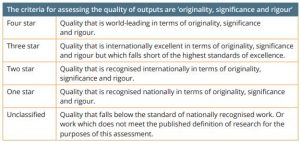
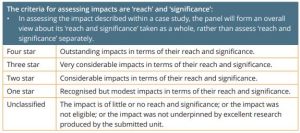
















 Education is changing – but what does this look like in practice? What does the future of learning hold for students? At Bournemouth University we are responding to research that considers how teachers of the future will work with their classes.
Education is changing – but what does this look like in practice? What does the future of learning hold for students? At Bournemouth University we are responding to research that considers how teachers of the future will work with their classes.
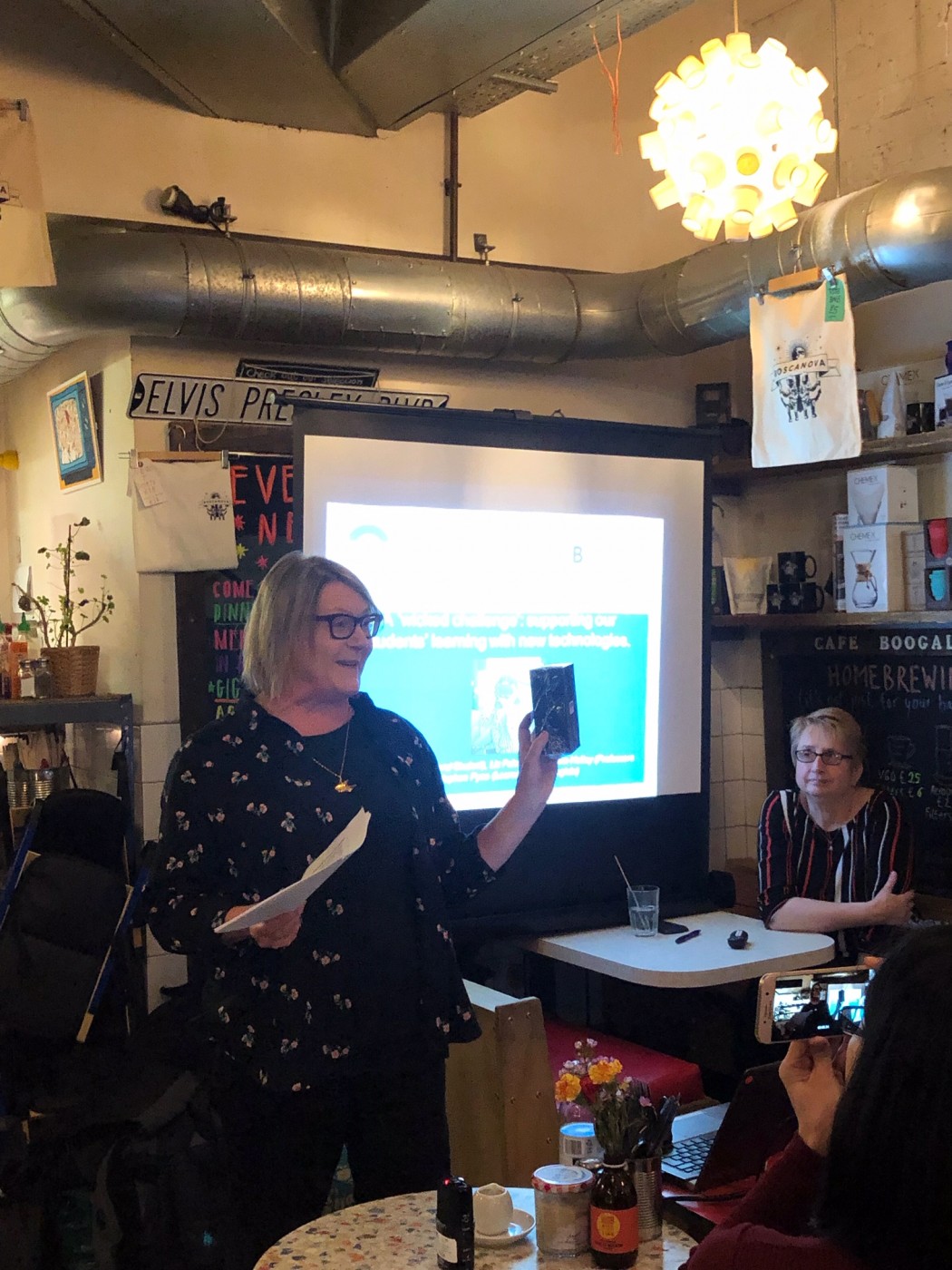




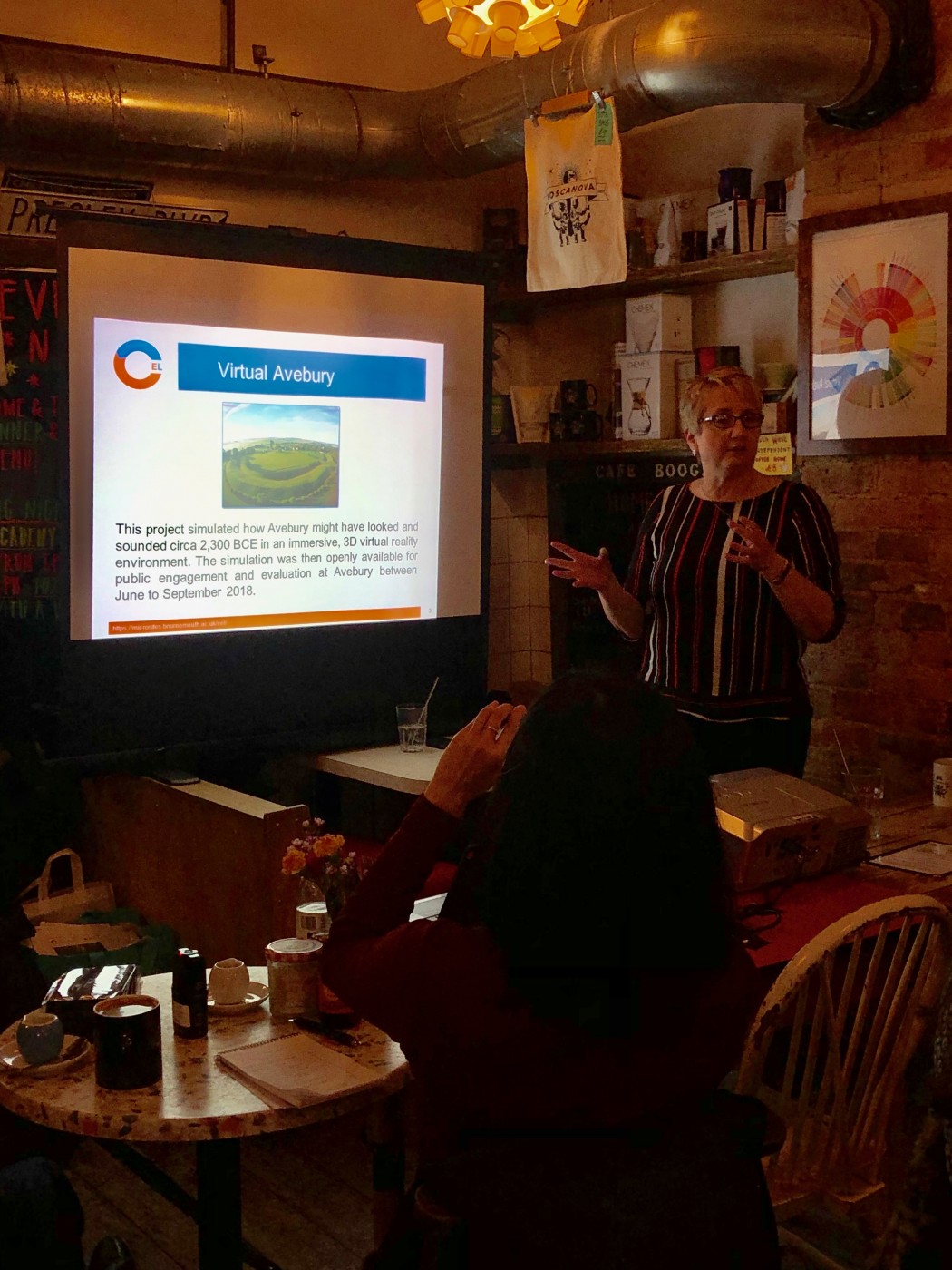 Not only did people enjoy visiting the VR Avebury, but for some it brought out an emotional reaction as they felt they had experienced some of what it would have been like to have visited the ancient site when it was still complete. One of the participants said; “I felt completely immersed in the landscape. It was really interesting to see the difference between the real stones outside and the simulation. The difference between the sizes of the banks and ditches was particularly striking!” Liz concluded with her favourite finding; that women over the age of 60 were the third most likely group to enjoy gaming (mostly on their mobile phones). It reminds us all not to pre-judge what we think people will find enjoyable and useful as a learning experience.
Not only did people enjoy visiting the VR Avebury, but for some it brought out an emotional reaction as they felt they had experienced some of what it would have been like to have visited the ancient site when it was still complete. One of the participants said; “I felt completely immersed in the landscape. It was really interesting to see the difference between the real stones outside and the simulation. The difference between the sizes of the banks and ditches was particularly striking!” Liz concluded with her favourite finding; that women over the age of 60 were the third most likely group to enjoy gaming (mostly on their mobile phones). It reminds us all not to pre-judge what we think people will find enjoyable and useful as a learning experience.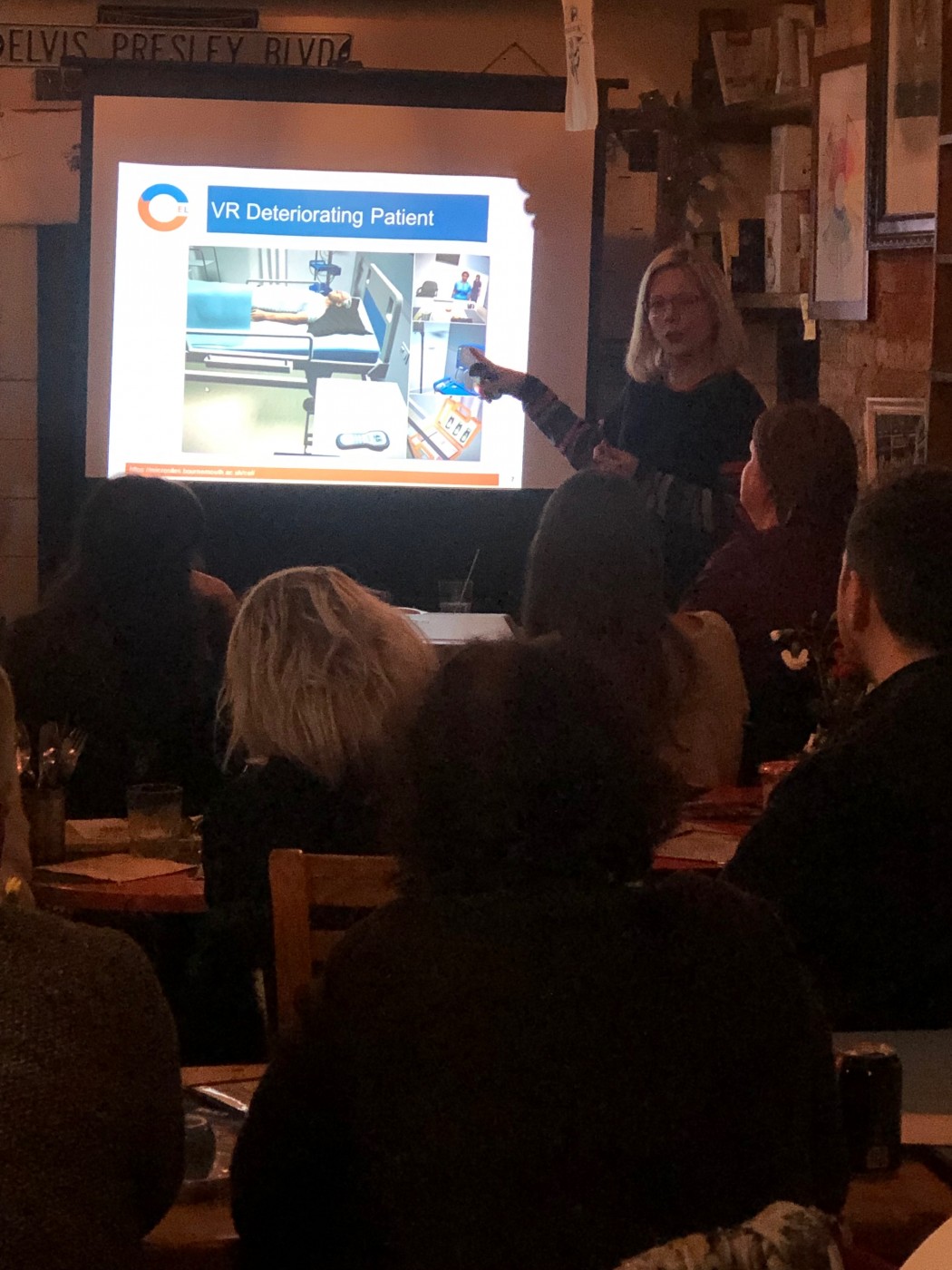
 If you’re interested in finding out more about VR, AR or 360 Video you can contact the
If you’re interested in finding out more about VR, AR or 360 Video you can contact the 











 BU academic publishes in online newspaper in Nepal
BU academic publishes in online newspaper in Nepal Final day of the ESRC Festival of Social Science
Final day of the ESRC Festival of Social Science Using Art to enhance Research
Using Art to enhance Research Register now to attend the 17th Annual Postgraduate Research Conference – Wednesday 3 December 2025
Register now to attend the 17th Annual Postgraduate Research Conference – Wednesday 3 December 2025 Portrait Concert featuring BU academic at L’Espace du Son Festival 2025, Brussels
Portrait Concert featuring BU academic at L’Espace du Son Festival 2025, Brussels ECR Funding Open Call: Research Culture & Community Grant – Application Deadline Friday 12 December
ECR Funding Open Call: Research Culture & Community Grant – Application Deadline Friday 12 December MSCA Postdoctoral Fellowships 2025 Call
MSCA Postdoctoral Fellowships 2025 Call ERC Advanced Grant 2025 Webinar
ERC Advanced Grant 2025 Webinar Horizon Europe Work Programme 2025 Published
Horizon Europe Work Programme 2025 Published Horizon Europe 2025 Work Programme pre-Published
Horizon Europe 2025 Work Programme pre-Published Update on UKRO services
Update on UKRO services European research project exploring use of ‘virtual twins’ to better manage metabolic associated fatty liver disease
European research project exploring use of ‘virtual twins’ to better manage metabolic associated fatty liver disease